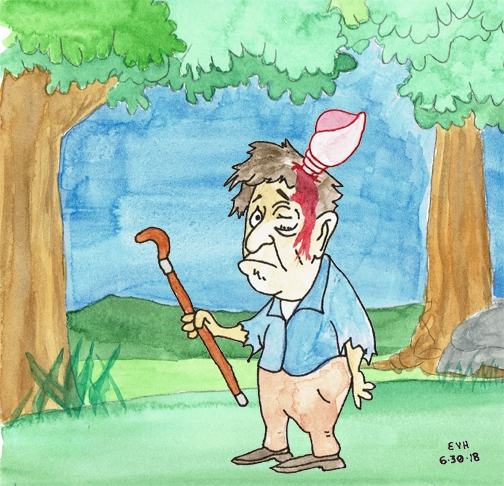
Jataka 60
Saṇkhadhamana Jātaka
The Conch Blower
as told by Eric Van Horn
originally translated by Robert Chalmers, B.A., of Oriel College, Oxford University
originally edited by Professor Edward Byles Cowell, Cambridge University
This is the next in a series about poorly behaved musicians. (There’s a joke in there somewhere.)
Especially in Tibetan Buddhism you will see the Eight Auspicious Symbols, of which the conch shell is one. It represents the “deep, melodious sound of the Dharma.”
A minor but interesting point in this story is that the Buddha here is the son and the foolish musician is his father. The Buddhist tradition holds that throughout infinite time we have all been related to each other in every way possible. We have been friends and enemies, each other’s mothers and daughters and fathers and sons and siblings so on. When I told this to my daughter when she was little, she found it quite amusing that she was my mother in a previous life!
“Don’t over-do it.” This story was told by the Master while at Jetavana. It is about another stubborn person.
Once upon a time when Brahmadatta was reigning in Benares, the Bodhisatta was reborn as a conch blower, and he went to Benares with his father to a public festival. He earned a great deal of money there by his conch blowing, and then he started for home again. On his way through a forest that was infested by robbers, he warned his father not to keep blowing his conch. But the old man thought he knew better how to keep the robbers off, and he blew away hard without a moment’s pause. Accordingly, just as in the preceding story, the robbers returned and plundered the pair. And, as above, the Bodhisatta repeated this stanza:
Do not go too far, but learn to avoid excess.
For over-blowing lost what blowing had won.

Figure: The Overblown Incident
His lesson ended, the Master showed the connection and identified the birth by saying, “This stubborn person was the father of those days, and I was the son.”
